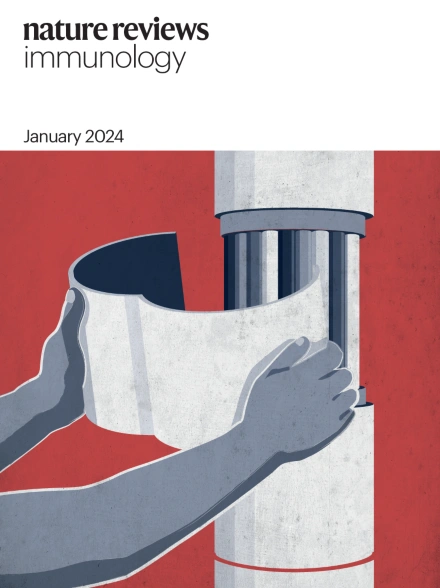The diversity of CD8+ T cell dysfunction in cancer and viral infection
IF 60.9
1区 医学
Q1 IMMUNOLOGY
引用次数: 0
Abstract
CD8+ T cells that are repeatedly exposed to antigenic stimulation, such as in the context of progressing neoplasms and chronic viral infections, acquire a dysfunctional or hypofunctional state that is generally known as exhaustion. There have been considerable efforts to develop therapeutic strategies that prevent exhaustion in these pathological scenarios, but there has been limited success. This may be because exhaustion is not the only source of T cell hypofunction in cancer and chronic viral infection. Here, we discuss the molecular and spatiotemporal mechanisms beyond exhaustion that underlie the inability of CD8+ T cells to eradicate malignant or chronically infected cells. We also propose a framework to enhance our understanding of these mechanisms — which include tolerization, anergy, senescence, cell death, exclusion and ignorance — with the ultimate aim of informing novel approaches to improve the clinical management of cancer and chronic viral infection. Beyond exhaustion, CD8+ T cells can adopt various dysfunctional states, including tolerant, anergic, senescent, ignorant and dying states, that compromise their ability to eradicate viruses or tumours. Here, the authors describe how these states may be distinguished, how they arise and the implications for immunotherapy.


癌症和病毒感染中 CD8+ T 细胞功能障碍的多样性
反复暴露于抗原刺激的 CD8+ T 细胞,例如在肿瘤进展和慢性病毒感染的情况下,会出现功能障碍或功能低下的状态,这种状态通常被称为衰竭。人们一直在努力开发治疗策略,以防止在这些病理情况下出现衰竭,但取得的成效有限。这可能是因为衰竭并不是癌症和慢性病毒感染中 T 细胞功能低下的唯一来源。在此,我们将讨论CD8+ T细胞无法消灭恶性或慢性感染细胞的分子和时空机制,而非衰竭机制。我们还提出了一个框架,以加强我们对这些机制的理解,其中包括耐受、过敏、衰老、细胞死亡、排斥和无知,最终目的是为改善癌症和慢性病毒感染的临床管理提供新方法。
本文章由计算机程序翻译,如有差异,请以英文原文为准。
求助全文
约1分钟内获得全文
求助全文
来源期刊

Nature Reviews Immunology
医学-免疫学
CiteScore
93.40
自引率
0.40%
发文量
131
审稿时长
6-12 weeks
期刊介绍:
Nature Reviews Immunology is a journal that provides comprehensive coverage of all areas of immunology, including fundamental mechanisms and applied aspects. It has two international standard serial numbers (ISSN): 1474-1733 for print and 1474-1741 for online. In addition to review articles, the journal also features recent developments and new primary papers in the field, as well as reflections on influential people, papers, and events in the development of immunology. The subjects covered by Nature Reviews Immunology include allergy and asthma, autoimmunity, antigen processing and presentation, apoptosis and cell death, chemokines and chemokine receptors, cytokines and cytokine receptors, development and function of cells of the immune system, haematopoiesis, infection and immunity, immunotherapy, innate immunity, mucosal immunology and the microbiota, regulation of the immune response, signalling in the immune system, transplantation, tumour immunology and immunotherapy, and vaccine development.
 求助内容:
求助内容: 应助结果提醒方式:
应助结果提醒方式:


